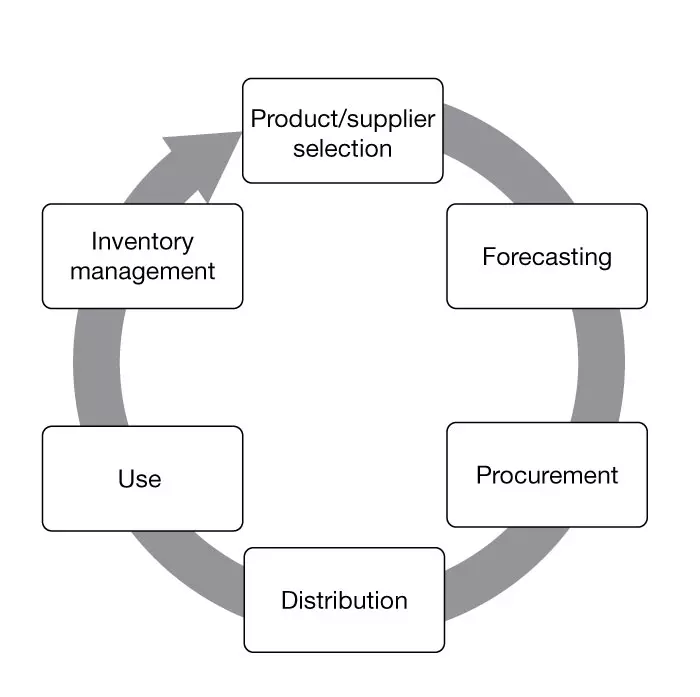In the current competitive business environment, the success of a firm is partly determined by the strategies it uses in managing procurement and supply chains. One of the ways of ensuring that a firm gets the best value in its procurement and supply chain is to use effective negotiation strategies. Negotiation is defined as a process in which two or more people with differing views, reach agreement by the use of different methods of persuasion. A negotiation process can only be considered a success if the two parties reach an agreement. Not all negotiations often end up in an agreement. However, if the parties can agree on the contentious issues involved, then the process is considered completed. Acquiring raw materials from suppliers is a process that requires negotiation. While the supplier may try to get as much profit from the supplies as possible, the buyer would want to purchase the Continue reading
Supply Chain Management
Developing Contracts in Procurement and Supply
Driving value through procurement and supply is the aim of every firm that has mastered the market forces. Such firms know that quality of the products they deliver to their customers and the price they shall charge all depend on their procurement strategies. As such, it is important to develop techniques that can be used in acquiring raw materials to improve the benefit, especially when the implementation is to be done in the future. The management should know the inclusions that should be made in the contract and measures that should be taken to ensure that changes in the market forces do not affect the agreements made in the contract. Effective management of the supply chain can help reduce the cost of production and in increasing value for the customers. Inclusions that should be Made in Procurement and Supply Contracts Developing contracts is one of the most complex processes that Continue reading
Building a Sustainable Supply Chain Through Triple Bottom Line (TBL)
Sustainability is an important aspect of business in modern society where environmental pollution, economics, efficiency, effectiveness, and conservation of energy are issues of concern. As a distribution network that organizations rely on distributing their diverse products, the supply chain has a significant impact on the environment. In this view, the supply chain should be sustainable for it to serve varied organizations optimally and experience growth in the competitive markets. Sustainability is beneficial to the supply chain because it reduces costs, decreases wastage, improves efficiency, saves energy, and enhances competitive advantage. Governments and customers also increase pressure on the supply chain to adopt strategies that are sustainable to protect not only the environment but also encourage prudent use of available resources. Recycle, reuse, reduce, and recover are the four principles, which promote sustainability of operations in the supply chain. In essence, the sustainability of the supply chain is central to improving Continue reading
Value Added Roles of Warehouses
Nowadays, the warehousing is playing a very important role in the supply chain management. Due to the strong competitive market nowadays, the function of warehouse is requiring to extend to a wide range. The warehousing not only provides the function of holding or storage the goods but it also provides the value-added services to improve the performance of the supply chain. The value-added services provided by warehouses are including; Buffer: The warehousing is holding the goods for the downstream stages of supply chain. It is to balance the difference goods schedules and aim to deal the efficiency in the distribution process and achieve the economic of scale. Consolidation center: The warehouse is used for accumulates and consolidates the goods from the different manufacturer or company for combined the goods into a same shipment to the customers. The consolidation can reduce the expenditure of transportation operations because it can reduce the Continue reading
Importance of Customer Service in Supply Chain Management
Supply chain is basically considered as a strategic concept that involves understanding and managing the sequence of activities -from supplier to customer-that add value to the product supply pipeline. The role of customer service in the supply chain management is not incidental. Every company in this chain, irrespective of market size mainly they thankful to its customers as the fact is that in all profit of firm there are customers are in center whom to buy the goods and services produced by each one of them. This century marks the end of monopolies and therefore customers can make an array of choices. When customers decide not to buy products in a particular supply chain, then no doubt the company would collapse without earning any revenue for the expenses incurred in launching the product on the stage of saturation and decline stage. So, the supply chain should be structured in such Continue reading
Inventory Management Concepts in Supply Chain Management
Inventory management aims to handle all function correctly with tracking and management of material. Inventory management is very wide definition like to replenishment lead time, carrying costs of inventory, asset management, forecasting, valuation, visibility, future inventory cost, space, quality etc. The ultimate aim of supply chain management is how well you manage your inventory. Manufacturers face a number of challenges which require not just exceptional planning but also an effective communication setup that keeps you updated at the spur of a moment. From rapid changes of customer demands, globalization or even natural calamities can cause your inventory to be stuck up paving way for no wages to the employees. Therefore there should be a quick information system to discuss the inbound and outbound issues affecting the demand and supply. For this there should be a well managed supply chain inventory management in order to keep the business running without any Continue reading



